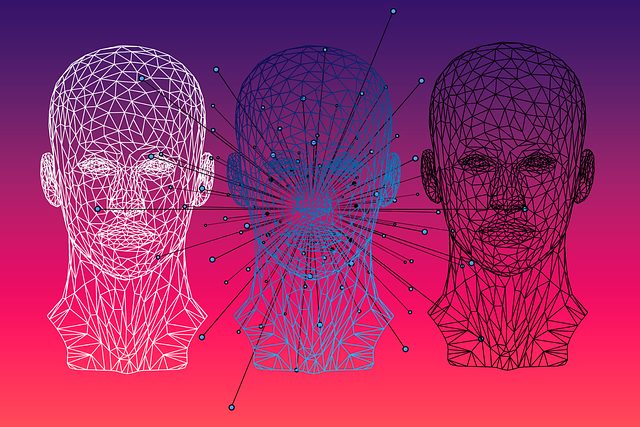Digital counseling, or online therapy, has transformed mental healthcare by providing accessible, flexible, and confidential therapeutic services via video conferencing, chat, and phone calls. Virtual therapy sessions overcome geographical barriers, accommodate busy schedules, and offer cost-effective alternatives to traditional in-person therapy. Success depends on technological readiness, mental preparation, clear communication, ethical considerations, and establishing secure online environments. With regular progress tracking and data-driven adjustments, virtual therapy is revolutionizing access to mental health care worldwide, aiming for normalization beyond the pandemic.
In today’s digital era, digital counseling offers individuals a convenient and accessible alternative to traditional therapy. This comprehensive guide explores virtual therapy sessions, highlighting their benefits, preparation tips, and various platforms available. We delve into effective communication strategies, ethical considerations, and common challenges. Additionally, we discuss measuring success, future trends, and how technology is revolutionizing mental health services, making online therapy a viable option for those seeking support from the comfort of home.
Understanding Digital Counseling and Virtual Therapy Sessions

Digital counseling, or online therapy, has emerged as a game-changer in mental health care, especially during today’s digital era. It involves providing therapeutic services through virtual platforms, allowing individuals to access counseling from the comfort of their homes. This innovative approach is particularly beneficial for those who may face barriers such as geographical location, physical limitations, or even a desire for more discreet support.
Virtual therapy sessions offer a safe and secure space where clients can connect with licensed counselors via video conferencing, chat, or phone calls. These sessions are designed to be interactive and engaging, facilitating open communication. Whether it’s cognitive-behavioral therapy, mindfulness training, or simple emotional support, virtual counseling provides a range of services tailored to individual needs. It has proven to be effective in treating various mental health conditions, offering flexibility, accessibility, and often lower costs compared to traditional in-person therapy.
Benefits of Online Therapy for Individuals

Many individuals are turning to digital counseling, or online therapy sessions, as a convenient and accessible way to support their mental health. This innovative approach offers several advantages over traditional face-to-face therapy. One of the key benefits is flexibility; virtual therapy allows clients to participate from the comfort of their own homes, removing geographical barriers and fitting around busy schedules. This accessibility is especially valuable for those who live in remote areas or have limited mobility.
Online therapy sessions also promote increased privacy and confidentiality. The digital platform provides a safe space for individuals to openly discuss personal matters without the potential distractions or judgments present in physical settings. Moreover, virtual counseling can be more cost-effective, making it an attractive option for those seeking affordable mental health support. With its numerous advantages, digital counseling is revolutionizing access to therapy, ensuring that more people can receive the care they need.
Preparing for Your First Virtual Therapy Session

Preparing for your first virtual therapy session can feel both exciting and daunting. The key is to approach it with a clear mind, much like preparing for any other important online meeting. Start by ensuring your technology is in order. Test your internet connection and familiarize yourself with the video conferencing platform your therapist uses. A stable, high-speed internet connection is crucial for seamless virtual therapy sessions.
On the day of your session, create a calm, private space free from distractions. Consider it your digital therapy room. Turn off notifications on your phone or computer to avoid interruptions. Dress comfortably and in a way that makes you feel confident and ready for an open dialogue. Remember, while technology facilitates the connection, the therapeutic bond is built through your vulnerability and willingness to share.
Different Types of Digital Counseling Platforms

In today’s digital era, various platforms offer virtual therapy sessions, transforming traditional counseling into accessible and convenient online interactions. These platforms cater to diverse therapeutic needs, from general well-being to specialized mental health services. Some popular options include video conferencing tools like Zoom or Skype, which facilitate face-to-face conversations with therapists in real time, creating a sense of closeness despite physical distance.
Other innovative digital counseling platforms utilize messaging apps, chat rooms, or dedicated therapeutic apps, providing asynchronous communication where clients can send messages, share thoughts, and receive personalized responses within set time frames. These options offer flexibility, allowing individuals to access support at their convenience. Additionally, some platforms incorporate AI-driven chatbots for immediate, 24/7 support, offering basic counseling and coping strategies to those in need of quick assistance between sessions.
Effective Communication in Virtual Therapy Sessions

In the realm of digital counseling, effective communication is paramount for successful virtual therapy sessions. With the shift to online platforms, therapists and clients must adapt their interaction styles to accommodate the unique challenges of non-face-to-face conversations. Clear and concise language becomes even more critical, as subtle cues often missed in person must be conveyed explicitly through text or video. Therapists should actively listen, verify understanding, and encourage open dialogue to ensure clients feel heard and supported.
Technological tools play a crucial role in facilitating this process, offering features like chat functions, video sharing, and collaborative documents that enable dynamic exchanges. However, it’s essential to balance these digital aids with empathy and human connection. Creating a safe, non-judgmental environment virtually requires therapists to be attuned to clients’ emotional needs, demonstrating patience, compassion, and genuine interest throughout the session.
Ethical Considerations in Digital Counseling

Ethical considerations are paramount in digital counseling, especially with the rise of virtual therapy sessions. As the digital landscape expands, counselors must navigate new challenges and ensure client privacy and confidentiality remain intact. The use of secure video conferencing platforms is essential to protect sensitive information shared during sessions. Counselors should also be mindful of potential technical glitches or security breaches that could compromise the safety of these interactions.
Additionally, establishing clear boundaries between personal and professional lives becomes more complex in a virtual setting. Counselors must maintain a professional demeanor throughout and set expectations for response times and availability to foster trust with their clients. Adhering to ethical guidelines specific to digital counseling ensures that individuals receive quality care while engaging in remote therapy sessions.
Common Challenges and How to Overcome Them

Many individuals seeking counseling face challenges when transitioning from traditional in-person sessions to virtual therapy. One common hurdle is establishing a comfortable and secure environment for sharing personal matters online. To overcome this, therapists should ensure a confidential digital space by using encrypted platforms and verifying privacy settings with clients. Additionally, they can offer guidance on creating a peaceful home office or counseling corner to enhance focus during virtual sessions.
Another challenge is the lack of non-verbal cues typically conveyed in face-to-face interactions. To address this, therapists should encourage active listening and open communication, prompting clients to share their feelings and experiences verbally. They can also utilize video conferencing to facilitate visual connections, allowing for better understanding and empathy, even from a distance. Effective techniques like these can make virtual therapy sessions as engaging and beneficial as their in-person counterparts.
Measuring Success and Tracking Progress in Online Therapy

Measuring success and tracking progress are essential aspects of any therapeutic journey, and digital counseling is no exception. In the context of virtual therapy sessions, progress can be evaluated through regular check-ins with clients to discuss their experiences, set new goals, and assess whether the interventions are effective. These check-ins often involve structured questionnaires or semi-structured interviews that explore symptoms, mood states, and overall functioning.
The use of digital tools also enables more objective measures, such as monitoring changes in behavioral patterns or adherence to treatment plans through app usage data. For instance, tracking the frequency and duration of virtual therapy sessions, engagement with therapeutic exercises, or completion of homework assignments can provide valuable insights into a client’s commitment and progress. This data-driven approach facilitates adaptive counseling, where therapists can adjust their strategies based on measurable outcomes, ultimately enhancing the overall effectiveness of online therapy.
Future Trends in Digital Mental Health Services

The future of digital mental health services looks promising, with virtual therapy sessions set to become an increasingly integral part of healthcare systems worldwide. As technology advances, we can expect a more seamless integration of online counseling platforms, making mental health support more accessible and convenient for individuals who may face barriers in accessing traditional face-to-face services. The trend towards digital counseling is not just a response to the current global health crisis but a step towards normalizing online therapy as an effective and efficient treatment option.
Innovation in this field will likely focus on improving user experience, enhancing privacy and security measures, and developing personalized treatment plans. With artificial intelligence and machine learning, digital platforms can offer tailored interventions, adapting to each individual’s unique needs and progress. This could include advanced natural language processing for more accurate assessments and intelligent virtual assistants to guide clients through their therapy journeys. The goal is to create immersive, engaging environments that foster meaningful connections between counselors and clients, ensuring effective virtual therapy sessions despite the digital barrier.
